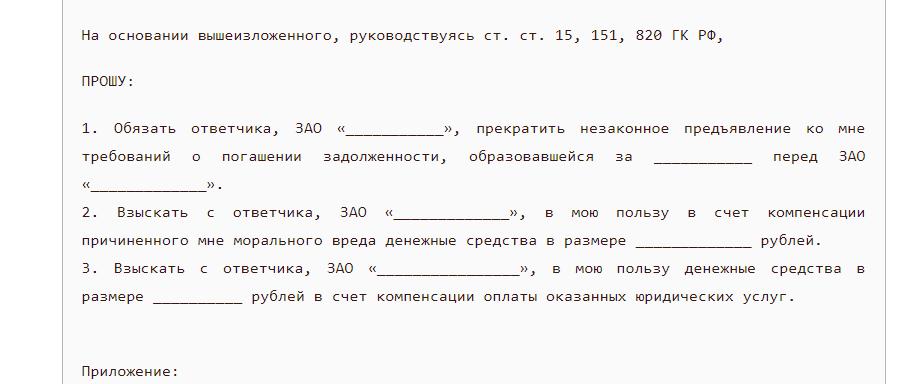Fulfillment of an obligation in kind - performance by a debtor of predetermined actions. If he refuses to execute it, the consequences are specified in the contract or the law. Consider the nuances of making a claim in a similar situation.
Normative regulation
Currently, the regulation of the occurrence and fulfillment of obligations is ensured by the norms of the Civil Code. It contains general provisions in the relevant chapter. Subsequent articles of the code have more specifics.

A number of clarifications were given by the RF Armed Forces in one of its decisions in 2016. GIC and AIC regulate the process of applying to the court and consideration of the claim.
The essence of the phenomenon
The law often does not explain what constitutes a particular phenomenon and describes only some aspects.
In the legal literature, the fulfillment of obligations in kind means the performance of certain actions. What exactly is the obligation, is prescribed in the clauses of the agreement.
The list of necessary actions may be established by the plaintiff when applying to the court. Below we consider what is the basis for the requirement.
Protection method
Filing a claim is the prerogative of the plaintiff. His responsibilities include the formulation of requirements for the defendant. All this applies to coercion to fulfill obligations in kind, which is one of the ways to protect rights.

The plaintiff has the right to expect to receive a previously agreed performance. If the debtor has not fulfilled the conditions or fulfilled, but with violations, the creditor has the right to action.
A feature of the described method of protection is the requirement to take specific actions if they are not of a monetary nature. When it comes to repaying debt, the wording for the recovery of cash is used.
Grounds for claim
As stated above, there must be appropriate reasons:
- clause of the contract imposing the corresponding obligation;
- the party to the contract has not fulfilled its obligation;
- the implementation is not impeded by the presence of objective factors independent of the will of the parties;
- the conclusion of the agreement is mandatory and the parties, when signing the document, departed from the provisions of the model contract stipulated by regulatory enactments;
- normative acts.
For example, owners are asked to remove obstacles to the use of their property. The process proves what the violations committed by the defendant are and the actions that he should take, according to the plaintiff: hand over the keys, move the fence, etc.
What else is the creditor entitled to
The compulsion to fulfill the obligation in kind gives the creditor the right to demand compensation in the court for damages and payment of the penalty. If he has lost interest in obtaining performance from the debtor, he still has the right to compensation and forfeit. The law does not prohibit entrusting the performance of the obligation of the debtor to a third party. And the expenses incurred by the creditor will fall on the first debtor.

If the execution was delayed, the injured party shall have the right to refuse to accept it.
Inability to fulfill an obligation in kind
Law, other regulatory acts, circumstances may exclude the consent of the court with the claim:
- the thing that the defendant should have transferred is destroyed, and it cannot be replaced for objective reasons (for example, the equipment was created exclusively for the requirements of the creditor, there is no other such thing);
- coercion in court is contrary to the law or other regulatory enactments adopted by the authority and the contract, for example, a person cannot be forced to perform at a concert.
Thus, the award of an obligation in kind is not always achievable.
Debtor Responsibility
Reasons for prosecution are violations of the terms of the agreements. They consist in poor-quality performance of services or work, delays in time. The result may not meet all customer requirements. There are a lot of options for potential violations.

Responsibility and fulfillment of obligations in kind, as phenomena, are built according to general rules, but the law provides for some features.
The law distinguishes several options:
- compensation for damages and payment of a penalty does not exempt from liability for improper performance of duties, the opposite is provided for by law or clauses of the contract;
- indemnification and payment of the penalty shall be exempt from liability, unless otherwise specified in the law or the contract;
- exemption from liability is possible with the consent of the creditor for the amount agreed by the parties, and in case of loss of the creditor for execution.
The latter option is implemented by signing the agreement by the parties.
The court does not have the right to refuse the claim, unless otherwise, the rights of the plaintiff cannot be protected. The rule does not apply if coercion is impossible for objective reasons or violates the provisions of the law.
When preparing a lawsuit, the plaintiff has the right to choose whether to simultaneously request the court to recover the penalty and damages and enforcement, or to do only the first two points.
Complaints
Disputes are dealt with in accordance with the two codes. Before going to court, you need to find out which court should consider the application.
Another difference in claims for performance in kind is the need to file a claim.

According to the Code of Civil Procedure, such an obligation, in particular, is present in consumer disputes. In the civil process, it is rather the exception. In arbitration, on the contrary. Disputes in which the plaintiff should not first submit a claim are rare.
Without evidence of the direction of the claim, the judge will not consider the application, and will leave it motionless or return it.
The court only considers the claims that were put forward to the defendant in the claim. For example, the plaintiff in the claim requested compensation, without mentioning the penalty. The judge will consider the claim only in terms of payment of damages, and claims for the penalty will be ignored.
General rules for drawing up a claim
Whatever process is triggered, the list of statement items is typical:
- name of court;
- information about the plaintiff (place of residence, location, address, means of communication);
- information about the plaintiff (place of residence, location, means of communication);
- statement of circumstances;
- references to the rule of law;
- statement of requirements;
- list of copies of attached documents.
- signature and filing date.

The number of sets of papers is formed based on the number of participants in the trial. This rule works in civil proceedings, a copy of the claim is submitted to the arbitration court with the attached documents and with evidence of their direction to other participants in the process.
Types of Requirements
How to formulate court requests:
- transfer of property (the buyer asks the court to oblige the defendant to transfer the previously paid property);
- elimination of shortcomings of the work performed (the application makes a specific listing of the shortcomings and the measures to be taken, according to the plaintiff);
- requesting documents (a member of the organization has the right to have access to documents, for example, shareholders or members of the HOA);
- coercion to conclude an agreement.
The options listed do not represent a complete list and affect typical situations. Sometimes you have to resort to the simultaneous presentation of two or more of these methods or use something non-standard.
Some nuances
In the case of a thing, the claim spells out the value of the property, price, location.
In the case of the performance of work or action, a specific list, scope and order of work are prescribed.

If the claim contains a request for the reclamation of documents, they must be fully listed, just a reference to regulatory acts is not enough.
I must say that the agro-industrial complex indicates how to formulate court decisions, and these norms of the law can be used as a guide to the formulation of the claim. Including in the civil process, the Civil Procedure Code does not differ in such detail.
The norms of the Civil Code of the Russian Federation on the fulfillment of obligations in kind also do not contain such details, so they should be taken into account when drawing up the contract.
